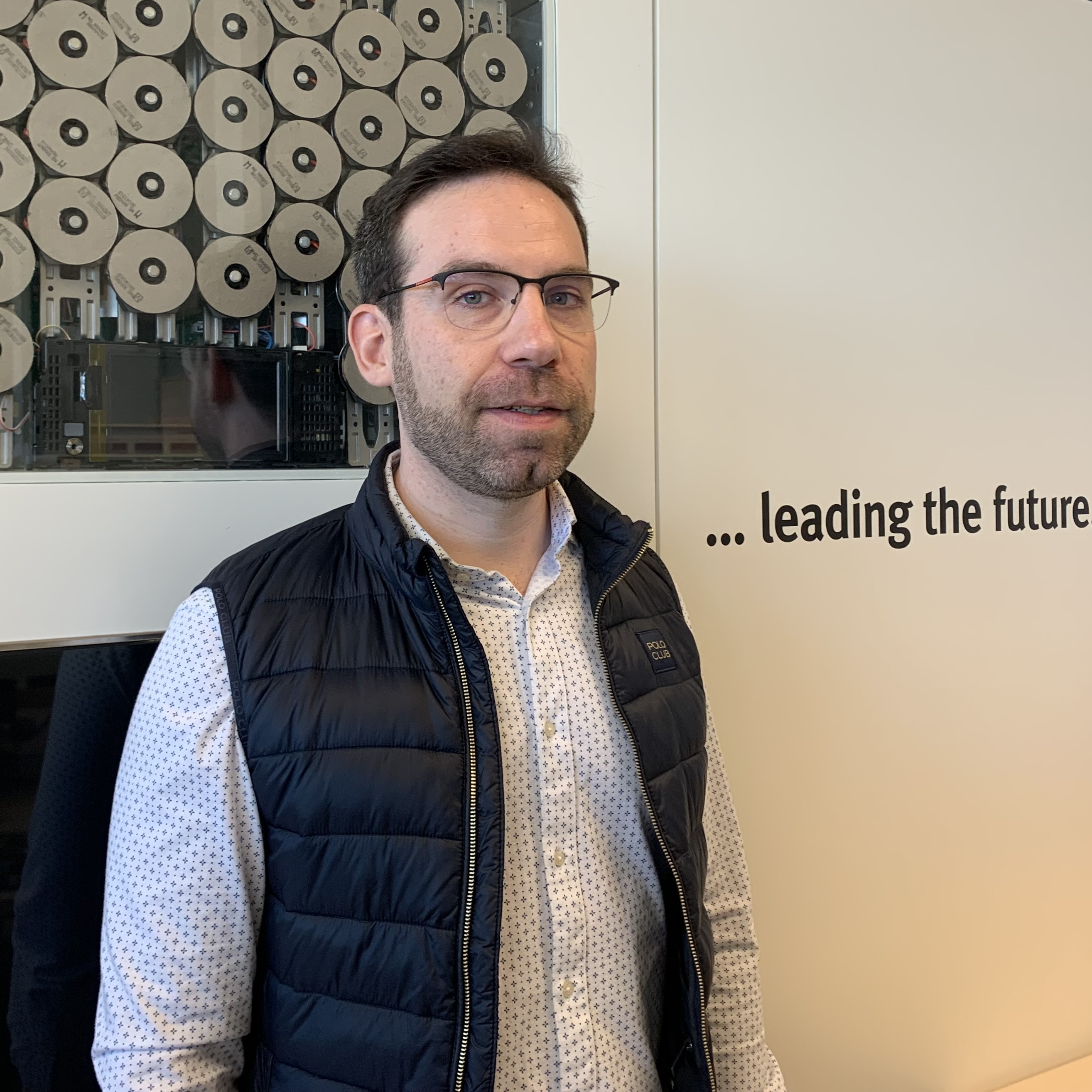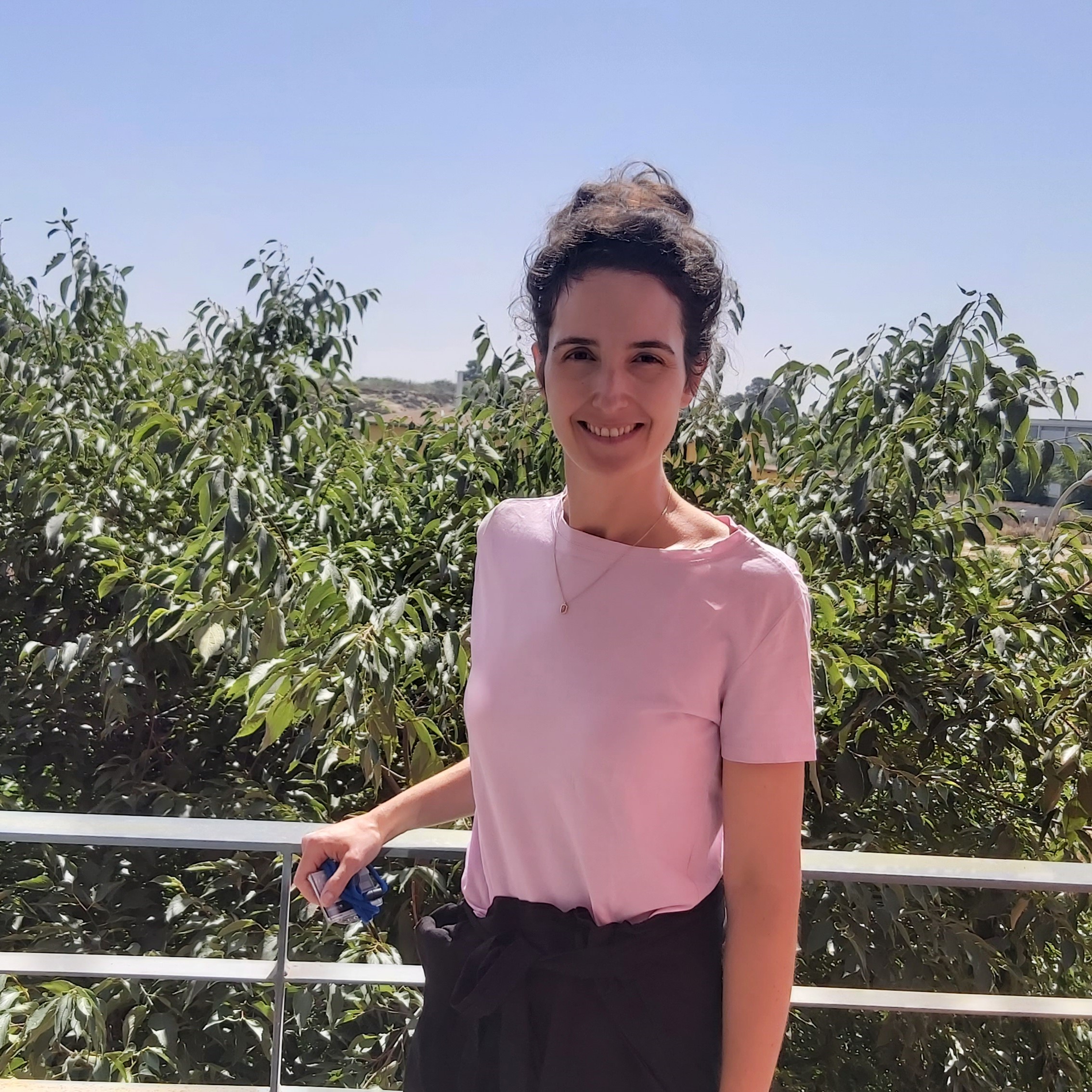
Why did you decide to go into research?
We all like to put into practice what we have learned in our careers, and I think it starts with that focus, but then when you see how your research can help people in different areas, you discover that there are more things. I work in power electronics, which basically seeks to process electrical energy as efficiently as possible, with applications ranging from induction cooktops to systems for cancer treatment or electric vehicles. Little by little, you realize that your work not only serves to generate more knowledge and satisfy you personally, but it also helps society solve problems, so that we can fry an egg better, drive an electric car for longer, or improve people's health. All of this, in the end, is very satisfying.
Did you always have a clear idea of what you wanted to dedicate yourself to?
Initially, I had more industrial interests; I wanted to dedicate myself to the company. In fact, I did my undergraduate thesis in a company and my doctoral thesis in collaboration with a company as well. But, little by little, I got the research bug, I saw the significance it can have, the impact on knowledge, industry, people, and decided to stay here.
How long have you been linked to the I3A and what would you highlight about the Institute?
I have been associated with the Institute since 2006 when I carried out my final project in the Power Electronics and Microelectronics Group (GEPM) in collaboration with BSH on induction cooktops. This topic was also the focus of my doctoral thesis, likewise in collaboration with the international household appliance company.
What I would highlight about the I3A is that it brings together very capable and multidisciplinary people. In the end, we find people like us who are dedicated to electronics, but also groups with a more chemical, environmental profile, there are also mechanical engineers... So, together, we are able to address a multitude of applications, from industrial to biomedical, through domestic and many others. This aspect of the Institute is one of its main assets.
In your research group, what are your most important lines or areas of work?
In GEPM, the research group to which I belong, we focus on power electronics with the aim of processing electrical energy as efficiently as possible. This approach has a multitude of applications, but I work on three specific ones.
Firstly, the design of induction heating systems, both industrial and domestic. The most representative application is the induction cooktops that we develop with BSH, Balay, Bosch, and other brands.
We also work on the development of electronic systems for electric vehicles, for vehicle charging and for managing all the energy within the vehicle. In this aspect, we aim for them to be cheaper and more efficient, meaning they cost less and we can cover longer distances with them.
Finally, we research the design of electro-surgical systems, power electronic systems for biomedical applications, mainly for cancer treatment using a technique called electroporation. We develop this with a multidisciplinary team composed of doctors, veterinarians, and biologists from different Spanish and international hospitals and research centers.
All these lines have had an important impact both socially and scientifically.
In these three areas of work, we have managed to generate scientific knowledge with considerable recognition, but also transfer it to industry and various biomedical fields, resulting in products that are on the market. In addition to creating jobs locally and elsewhere, an equally important point.
Transfer is one of the main values of both our Research Institute, and particularly of our group. We like to work very closely with companies, setting common goals in research as well as industrial ones. And, in this way, ensure that research does not remain in our laboratory, but also reaches everyone's homes, our garages, or hospitals.
What do you enjoy most about your profession? And what do you enjoy least?
What I like most about research is creating impact both at the scientific and transfer level. Both are fundamental and what motivates me the most to research, to discover new things, apply them, and transfer them so that industry, society, or whoever benefits from it. In addition, as a university professor who has been able to stabilize relatively early, I believe we also have a fundamental role in supporting young researchers. I am an academician of the Young Academy of Spain and one of our objectives is to support young people who, sometimes, have a very difficult time developing their careers due to multiple economic, positions, stability, etc. Helping them develop their careers is something that enriches me.
On the other hand, things that do not motivate me, especially, the enormous bureaucracy to which we are forced to do absolutely everything, from buying components to hiring a person.
What would you say to anyone thinking of going into research?
The research career has to be vocational because it requires effort; it has to be something that motivates you, that you like, but I think that when it is fully developed, it is very beautiful. You can see how your effort translates into discoveries, into new knowledge, into a new product that helps people, companies, society in general. From that point of view, for me, it is one of the most rewarding professions there can be.
CLOSE UP…
What did you study?: Industrial Engineering
A dream to fulfill: In my profession, I have two goals in mind. To do my bit to help Spain move towards an industrial model based on research and not just on production, to multiply the added value of what we do and to achieve technological independence. And, furthermore, to contribute to the development of the research careers of our young people, something I am working on through the Academia Joven de España.
A trip: Japan
Hobbies: Sport, music and travel.
A book: Tinker Tailor Soldier Spy
A film: Spirited Away
Musical group: Héroes del Silencio
How would you define yourself: A hard-working, restless and executive person. I always like to be thinking about new personal and professional projects, and try to find the most efficient way to carry them out.
